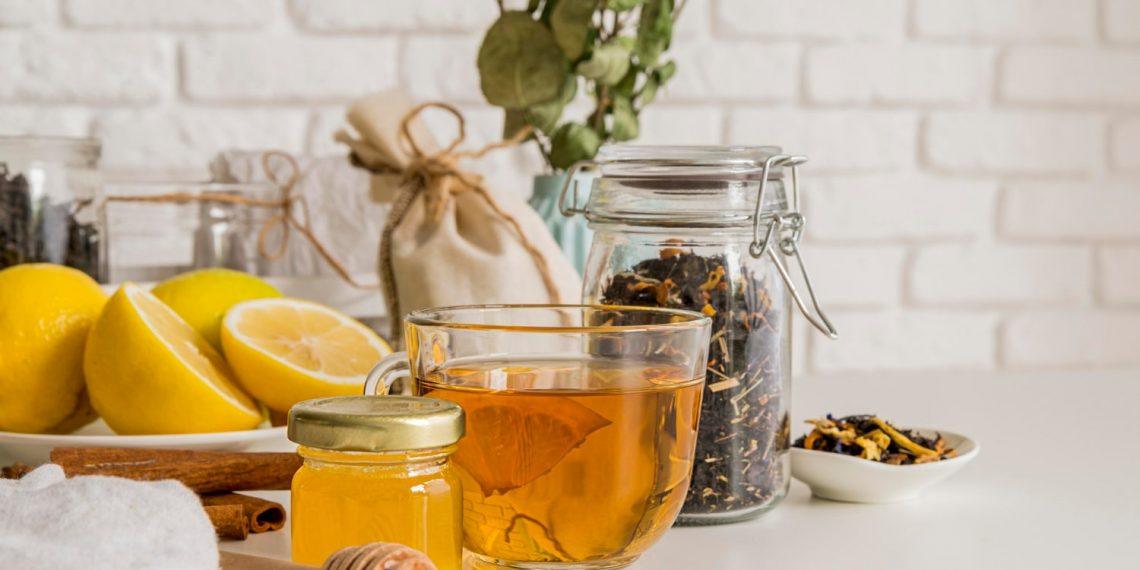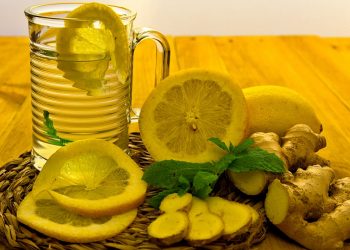Feeling bloated? You’re not alone. Anti-bloat teas can be your fast track to comfort and relief, providing soothing benefits that your body craves. In a world that constantly bombards us with rich foods and stress, bloat creeps in like an unwelcome guest. Thankfully, nature has gifted us with a variety of teas that tackle this issue head-on.
Bloating can be uncomfortable and downright annoying. It affects your daily routine, your mood, and even your confidence. Understanding how to combat it naturally is crucial, and that’s where these teas come into play. Let’s dive into the seven anti-bloat teas that can help you reclaim your relief and feel light and vibrant again.
Contents
What Causes Bloating?
Before we explore these magical brews, it’s essential to understand what’s behind that uncomfortable feeling. Bloating is often caused by:
- Overeating: Your body struggles to digest too much food at once.
- Gas: Certain foods can trigger gas production in your gut.
- Food Intolerances: Lactose or gluten, for example, can lead to bloating.
- Dehydration: Ironically, not drinking enough water can cause your body to retain fluid.
- Hormonal Changes: Women may experience bloating during their menstrual cycle.
Understanding these triggers can help you make better choices, but let’s focus on solutions—starting with our favorite anti-bloat teas.
1. Peppermint Tea
Why It Works: Peppermint tea is renowned for its soothing properties. The menthol in peppermint helps relax the digestive muscles, reducing gas and bloating.
How to Enjoy: Steep fresh peppermint leaves or a tea bag in hot water for about 5-10 minutes. Enjoy it after meals to aid digestion.
Benefits:
- Relieves headaches often caused by bloating.
- Freshens breath—an added bonus!
2. Ginger Tea
Why It Works: Ginger is a powerhouse when it comes to digestion. It stimulates saliva, bile, and gastric enzymes, helping your body break down food more effectively.
How to Enjoy: Slice fresh ginger root and simmer in water for 10-15 minutes. Add a little honey for sweetness if you’d like.
Benefits:
- Anti-inflammatory properties can ease discomfort.
- Helps reduce nausea, making it ideal for upset stomachs.
3. Chamomile Tea
Why It Works: Chamomile is not just a bedtime tea; it has anti-inflammatory and antispasmodic properties that can help ease bloating and digestive issues.
How to Enjoy: Steep chamomile flowers or tea bags in hot water for about 5 minutes. Sip slowly and relax.
Benefits:
- Calming effects can help reduce stress-related bloating.
- May improve sleep quality, contributing to overall health.
4. Fennel Tea
Why It Works: Fennel seeds are known for their ability to relieve gas and bloating. They contain compounds that relax the muscles of the gastrointestinal tract.
How to Enjoy: Crush fennel seeds and steep them in boiling water for about 10 minutes. Strain and enjoy.
Benefits:
- Natural diuretic properties can help reduce water retention.
- Antioxidants support overall digestive health.
5. Dandelion Tea
Why It Works: Dandelion tea acts as a natural diuretic, helping to flush out excess water and reduce bloating.
How to Enjoy: Use dried dandelion leaves and steep them in hot water for 10 minutes.
Benefits:
- Rich in vitamins A, C, and K, supporting overall well-being.
- Promotes liver function, aiding in detoxification.
6. Rooibos Tea
Why It Works: Rooibos is caffeine-free and packed with antioxidants. Its anti-inflammatory properties can help soothe a bloated belly.
How to Enjoy: Brew rooibos tea bags or loose leaf in hot water for about 5 minutes. Add a splash of almond milk for a creamy treat.
Benefits:
- Contains minerals like calcium and magnesium, promoting overall digestive health.
- Its low tannin content makes it gentle on the stomach.
7. Lemon Balm Tea
Why It Works: Lemon balm is a member of the mint family, known for its calming effects. It can help relax the digestive tract, easing discomfort from bloating.
How to Enjoy: Steep fresh or dried lemon balm leaves in hot water for 10 minutes.
Benefits:
- May reduce anxiety and stress—common contributors to digestive issues.
- Antioxidant properties support gut health.
How to Incorporate Anti-Bloat Teas into Your Routine
Drinking tea is an art, and knowing when to sip makes all the difference. Here are some tips to weave these anti-bloat teas into your daily life:
- Morning Ritual: Start your day with ginger or peppermint tea to kickstart digestion.
- Post-Meal Relief: Sip chamomile or fennel tea after meals to help ease any bloating.
- Evening Wind Down: Enjoy rooibos or chamomile tea before bed to relax your body.
Additional Tips for Bloating Relief
While anti-bloat teas can work wonders, consider these additional strategies to combat bloating:
- Stay Hydrated: Drink plenty of water throughout the day to help your body flush out excess sodium and prevent water retention.
- Mindful Eating: Chew your food thoroughly and eat slowly to reduce the amount of air swallowed.
- Identify Trigger Foods: Keep a food diary to determine which foods may be causing your bloating.
- Exercise Regularly: Gentle activities like walking can stimulate digestion and help alleviate bloating.
The Science Behind Anti-Bloat Teas
You might wonder if these teas actually work. Research supports their benefits:
- Ginger has been shown to reduce nausea and improve digestion (see National Center for Complementary and Integrative Health).
- Peppermint can effectively relieve symptoms of irritable bowel syndrome, often associated with bloating (refer to American Gastroenterological Association).
- Dandelion is recognized for its diuretic properties, aiding in the reduction of bloating (source: WebMD).
Bottom Line
Bloating doesn’t have to be your constant companion. With these anti-bloat teas, you can find relief and feel more comfortable in your skin. Each tea offers unique benefits, and integrating them into your daily routine can create a soothing ritual that nourishes your body and soul.
Take a moment to listen to your body. If bloating is a frequent issue, explore these teas, stay mindful of your eating habits, and embrace a holistic approach to your health. You deserve to feel vibrant and free from discomfort!
FAQ
1. How often can I drink anti-bloat teas?
You can enjoy these teas daily, but listen to your body. If you experience any discomfort, consider reducing your intake.
2. Can I drink these teas if I’m pregnant?
Always consult your healthcare provider before trying new herbal teas during pregnancy.
3. What’s the best time to drink these teas?
Post-meal is often the best time to sip these teas for maximum relief.
Embrace the warmth and comfort these anti-bloat teas provide, and let your body thank you!
Get Your FREE Natural Health Guide!
Subscribe now and receive our exclusive ebook packed with natural health tips, practical wellness advice, and easy lifestyle changes — delivered straight to your inbox.















